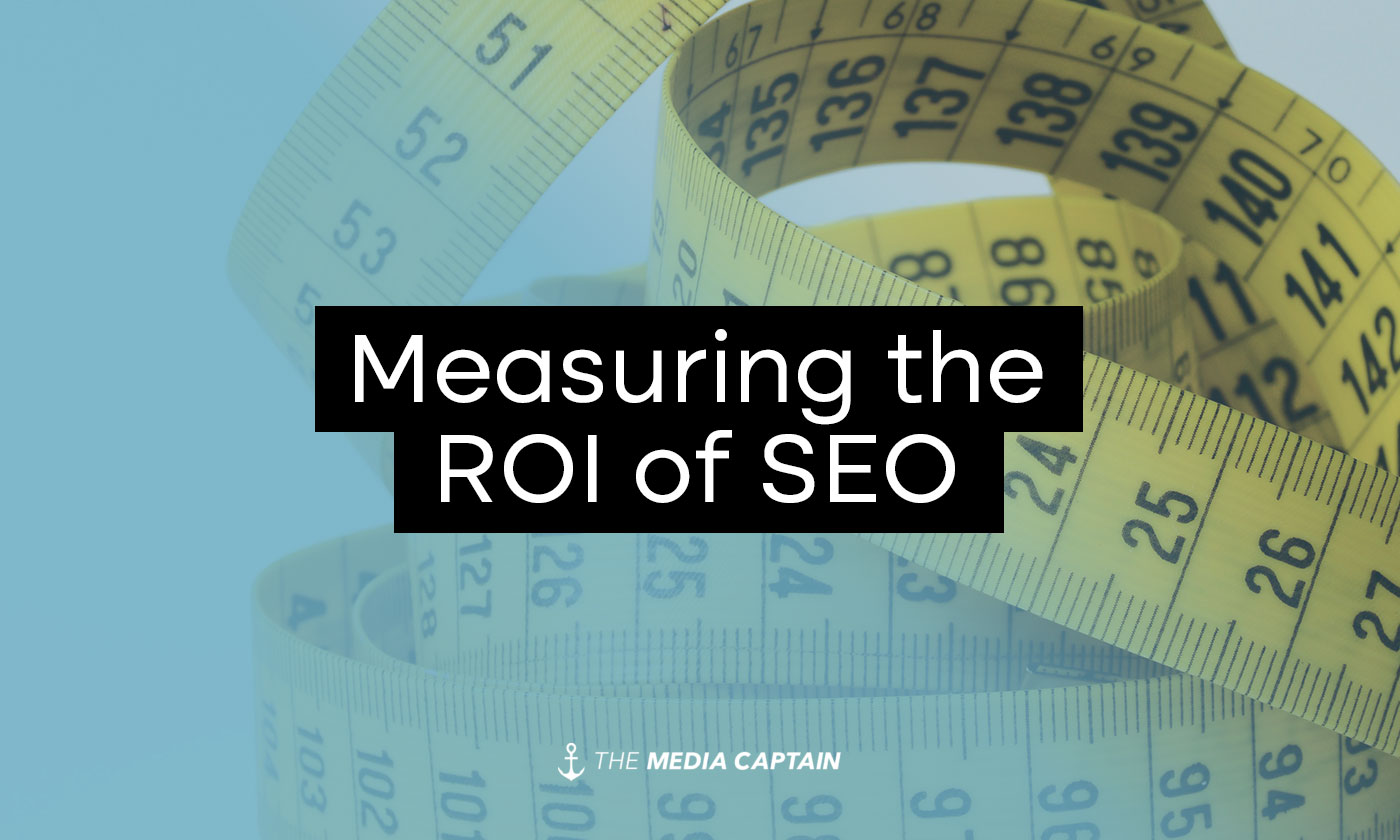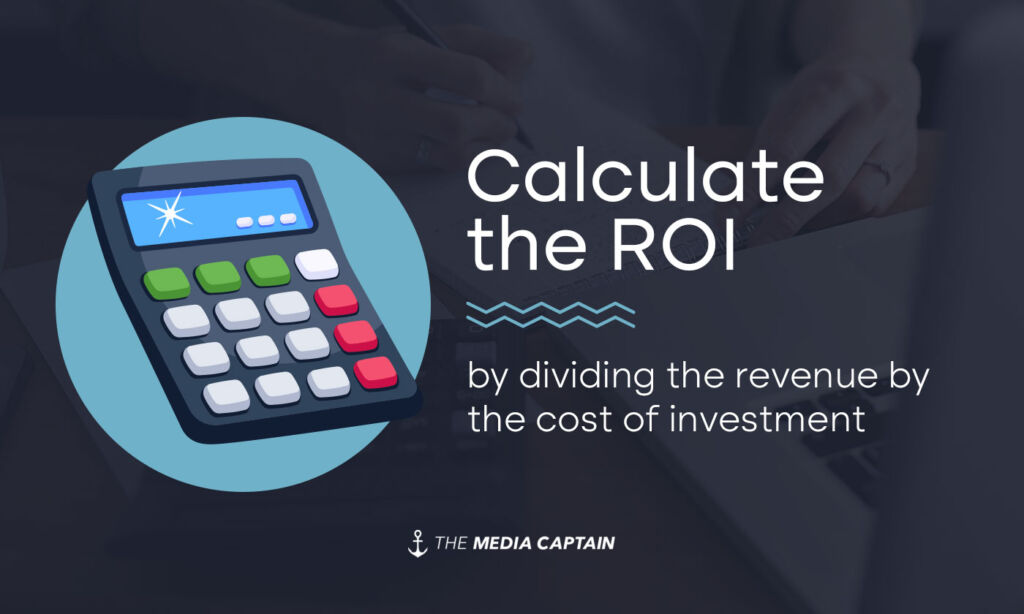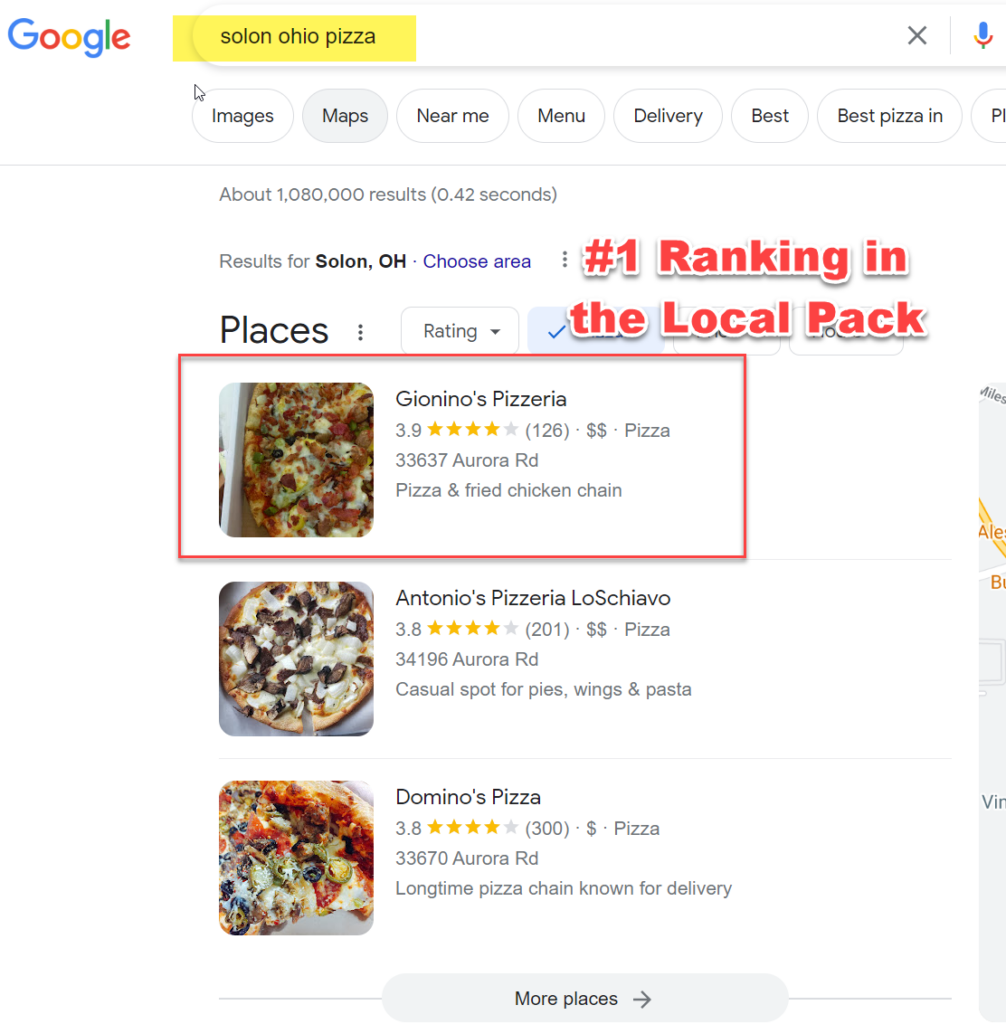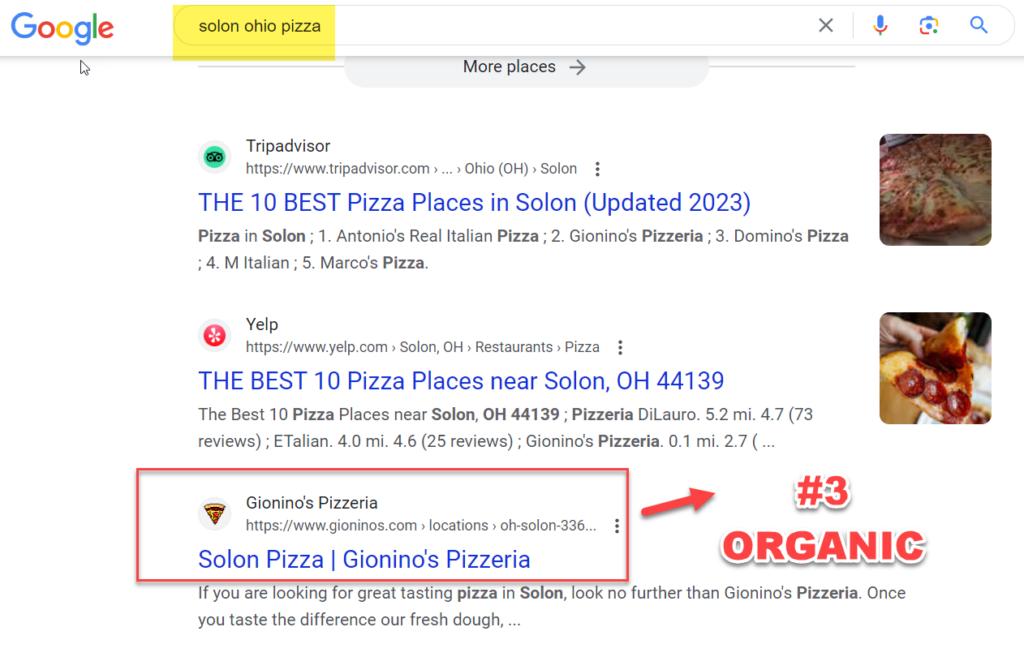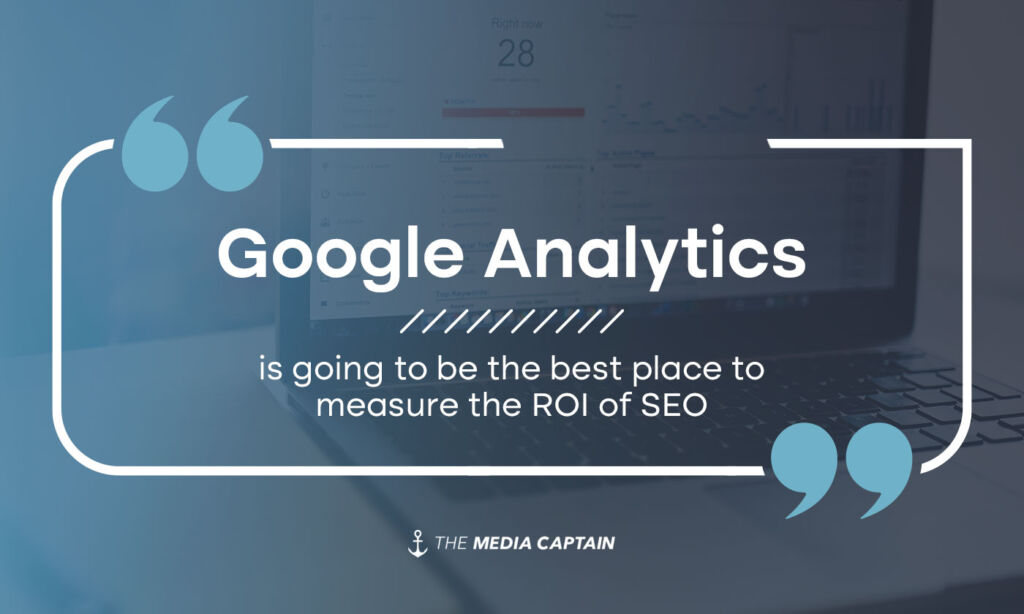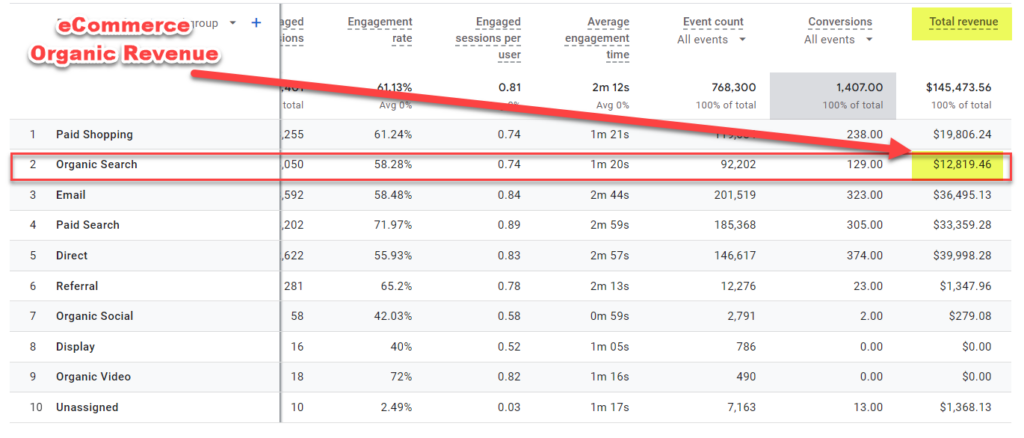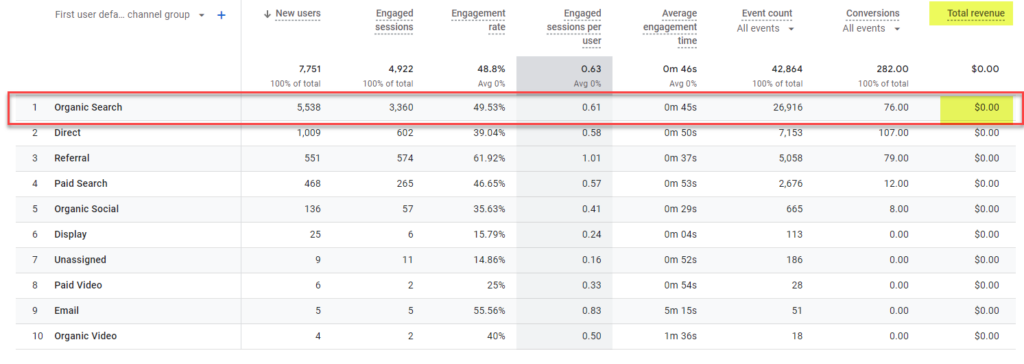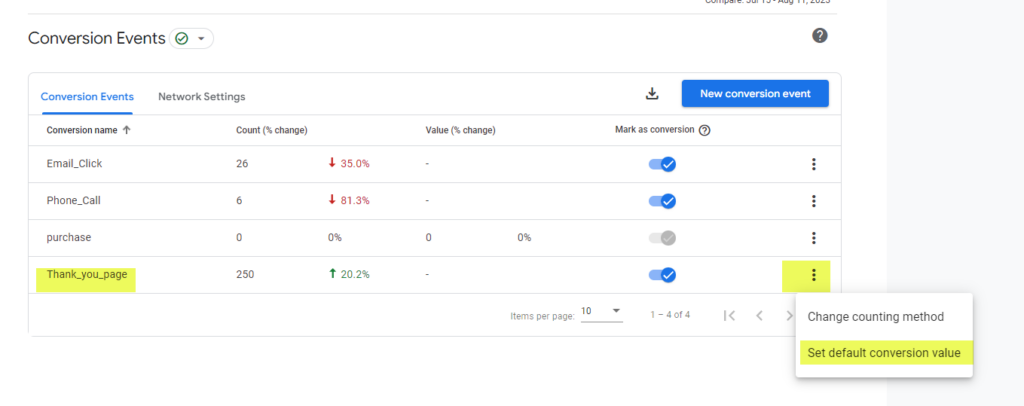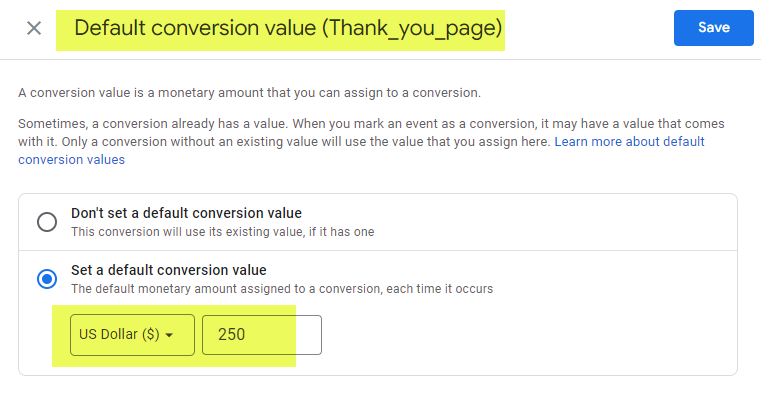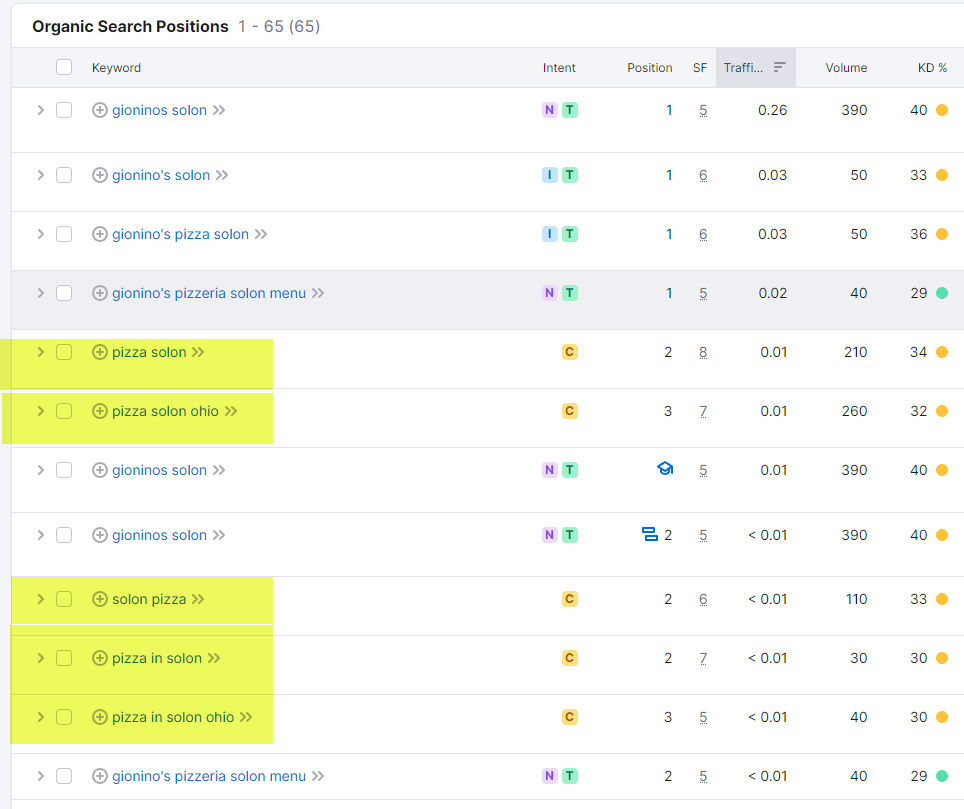What Is SEO ROI?
SEO ROI is a calculation that measures the return on investment of search engine optimization efforts. The ROI of SEO accounts for the organic revenue divided by the resources you invest in SEO.
I’ve heard firsthand from business owners and marketers that they don’t know how to measure SEO success. My goal is to showcase how we measure SEO ROI so you can better gauge organic results for your business.
HOW DO YOU MEASURE THE ROI OF SEO?
- Determine how much you’re spending and investing in SEO
- Determine how much revenue you’re generating from SEO
- Calculate the return on investment by dividing the revenue by the cost of investment
While the calculation above sounds simple, it’s important to understand where to find these key data points, which I’ll explain later on!
Why SEO ROI Is Important
- Convincing Key Stakeholders
- When you can justify a positive return on investment from SEO, more resources can be allocated to search engine optimization.
- Let’s say your blog generates many new leads for your business, but you only have one writer on staff. Once you prove the ROI, you could get buy-in to hire two additional writers, generating twice the amount of leads.
- Making Key Decisions
- When you properly measure and analyze the ROI of your SEO efforts, it allows you to make better decisions.
- For example, if you invested in the proper SEO tools that showed a massive uptick in keyword rank after on-site changes were made for a specific product page, you could allocate time and effort to making similar optimizations on other product pages. By tracking keywords versus competitors, you can see where there’s an opportunity to increase organic presence.
- Accountability
- Every business endeavor should track the return on investment. The same holds for SEO. Measuring success (or failure) will justify search engine optimization’s impact on your organization.
Example Of MEasuring ROI With SEO
Gionino’s Pizza
Below is an example of how our agency would work with a business to measure the ROI of SEO.
- Gionino’s is a pizza delivery shop in Solon, Ohio, a suburb of Cleveland.
- The owner invests $800 per month with a local SEO agency, which equates to $9,600 per year ($800 x 12 months = $9,600).
- Gionino’s SEO agency ranked him in the number one position in the local pack and #3 in the organic search results for the query “Solon, Ohio Pizza,” which drives a lot of business.
- The average customer order is $25
- Gionino’s averages 25 orders per day via organic search
- $25 per order x 25 orders per day = $625 in daily revenue
- $625 (daily revenue) x 365 (days in year) = $228,125 (annual revenue)
- For every $1 spent on SEO, Gionino’s generates $23.76
- You divide the annual revenue of $228,125 by $9,600, the cost of the SEO company, to get your SEO ROI.
- $228,125 / $9,600 = 23.76 [ROAS]
Gross Profit for Calculation
- Rather than considering total revenue for the ROI of SEO, some businesses like to use gross profit as an indicator when calculating the ROI of SEO.
- Gross profit represents the income or profit remaining after the production costs have been subtracted from revenue.
- If Gionino’s had a 40% margin, the ROAS from SEO would have been 14.2 [ROAS] instead of 23.76 ROAS
- To calculate the gross profit, we take $228,125 (revenue) – $91,250 (costs) = $136,875
- To calculate the SEO ROAS with gross profit, take $136,875 (gross profit) / $9,600 (SEO expense) = 14.2 [ROAS]
Local Pack Ranking
Organic Rankings
Utilizing Google Analytics To Measure ROI Of SEO
Measuring ROI Of SEO For eCommerce Business
- For an eCommerce business, measuring the return on investment of SEO is fairly straightforward. Within Google Analytics, look at “user acquisition” to see the breakdown of traffic sources.
- You will hone in on “Organic Search” and “Total Revenue”
- You divide the total revenue from organic by the investment that you’re making into SEO to determine the ROI
Taking Branding Into Consideration
- Organic traffic can consist of people typing your brand name into Google and visiting your site. A business shouldn’t give credit to an SEO agency or in-house person for this revenue, as this is more general brand awareness.
- Depending on your brand’s popularity, you can subtract a percentage from total revenue to get a more accurate ROI of SEO. In the case of the client below, we estimate that 20% of traffic going to their site is from the brand. We would deduct 20% from $12,8179.46
Measuring ROI Of SEO For Non-ECommerce Business
- So many people get stuck measuring the ROI of SEO because they are non-eCommerce and feel this metric can’t be tracked because they don’t have revenue pulled into Google Analytics. This shouldn’t stop you from measuring your SEO’s ROI.
- Within Google Analytics, look at “user acquisition” to see the breakdown of traffic sources.
- This client has 76 conversions, but there’s no revenue pulling in. This is an easy change within Google Analytics 4 by adding a default conversion value.
Find Default Conversion Value
- Within Google Analytics, you can set up a default conversion value.
- Conversion values quantify the monetary impact of each conversion and better estimate your ROI.
- Within conversion events within GA4, you can “Set Default Conversion Value” for each conversion action.
- Highlighted below are the steps to set your default conversion value.
Setting Default Conversion Value
- You should try to calculate the default conversion value based on the number of online leads that become actual customers for your business.
- This isn’t 100% accurate, but it will provide a good estimate.
- For the sake of this example, let’s say out of every ten contact form submissions, one turns into a new client (10% conversion rate)
- Your average client pays $2,500
- You would set your default conversion rate for $250 to help measure the ROI of SEO
- $2,500 (average bill for a new client) / 10 (conversion rate of online leads) = $250
Monitor Keyword Rankings
Now that you understand how to track the SEO ROI within Google Analytics, it’s important to learn how keyword tracking helps support the organic data within Google Analytics.
- Tracking keywords is an amazing way to understand where you rank on Google and what keywords drive profitable traffic and sales.
- The goal for any company investing in SEO is to create a comprehensive keyword list to understand the following:
- Where do you rank on Google
- Where do competitors rank on Google
- Where opportunities exist to improve keyword rankings
- When coveted keywords increase in rank, especially on the first page of Google, there will normally be a direct uptick in organic traffic and total revenue.
- A good SEO firm or in-house person should be able to showcase how their SEO changes impacted keyword rankings and organic traffic growth.
- Our agency loves SEMRush for keyword tracking. You can also find organic rankings within Google Search Console, a free tool offered by Google.
- In the example below, highlighted are all of the non-branded searches that Gionino’s is ranking well for
- For “Pizza Solon Ohio” they are ranked in the number three position.
- If an SEO firm further optimizes Gionino’s homepage to get it ranked in the number one position, it should see an uptick in organic traffic.
- The first organic result in Google Search has an average click-through rate of 28.5%
- The second and third positions have a 15% and 11% click-through rate, respectively.
- Unsurprisingly, the tenth position in Google has an abysmal 2.5% click-through rate.
- Keyword tracking won’t provide you with an exact ROI on SEO. You need to marry this up with Google Analytics.
In Closing
- Google Analytics is going to be the best place to measure the ROI of SEO
- Your business should devise calculations to measure the return on investment of SEO.
- Utilizing keyword tracking will show what keywords are impacting organic growth or decline.
- SEO can have a big impact on your bottom line. It’s imperative to track this to justify the return on investment.


